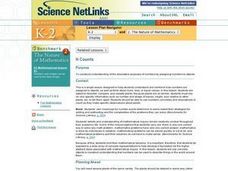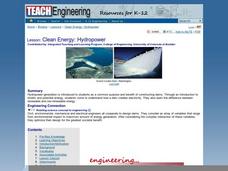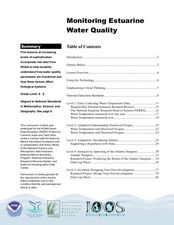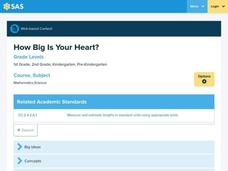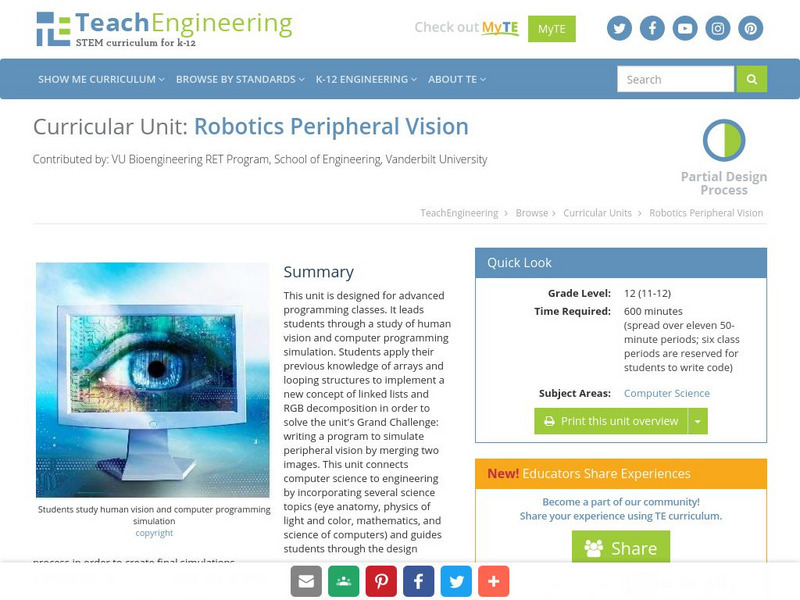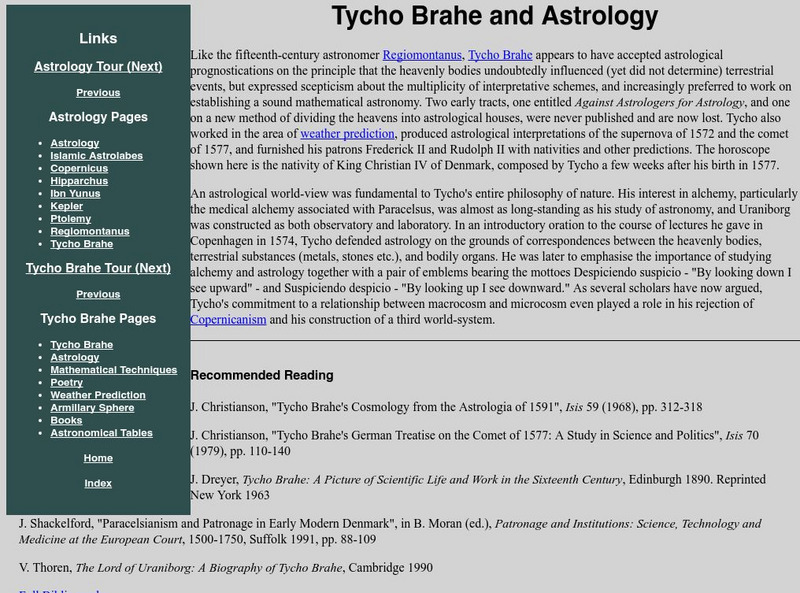Curated OER
Multiplication Strategies - A Day at the Zoo
This is an amazing 33-page resource for teaching multiplication! Your mathematicians will discover the connection between multiplication and repeated addition. They also will work collaboratively with arrays while studying zoo animals....
Teach Engineering
Ice, Ice, PV!
Knowing the temperature coefficient allows for the calculation of voltage output at any temperature. Groups conduct an experiment to determine the effects of temperature on the power output of a solar panel. The teams alter the...
Curated OER
It Counts
Students classify and compare plants using specific information, observations, and numbers. For this mathematical inquiry lesson, students use plant characteristics to describe, compare, and classify them. They attempt to develop a...
NASA
Down to Earth
There are only 10 types of people in the world: those who understand binary and those who don't. The lesson includes four activities in which students learn binary, convert binary to images, understand CCD arrays, and interpret...
Clean Up Australia
Why are Batteries Harmful to the Environment?
Open this lesson by reading together about primary and secondary batteries (such as nickel-cadmium cells), problems they can cause in the environment, and how humans can minimize the damage. Afterward, little ones examine a collection of...
Teach Engineering
Solar Angles and Tracking Systems
The sun will continue to rise in the east and set in the west, no matter what. The first lesson plan in a series of eight introduces the class to solar angles. It makes connections between a person's latitude and the angle of position of...
Norwich Institute for Language Education
Simple Machines
Planning a unit on simple machines? Save some time and energy with this collection of lessons and activities that explores how these devices are used in the real world to make life a little easier.
Curated OER
Pollution or Prevention?
Students examine potential contamination on the environment due to products and by-products of a new industrial process. Students conduct a lab that explores the economic differences between choices of pollution cleanup and prevention.
Curated OER
CO2 and You
Students study the scientific evidence about carbon dioxide emissions. They learn to calculate the amount of energy used by different appliances. They complete a worksheet which analyzes the amount of energy that their home uses.
Curated OER
Junior Solar Sprint Series: Electrical Power
Through scientific inquiry, middle schoolers discover how to arrange solar cells in order to produce electricity. This activity is intended to prepare learners to be able to design and construct solar cars. As with other resources...
Teach Engineering
How Antibiotics Work
Take two pills and call me in the morning. The first lesson in a short unit of four introduces class members to delivery methods of medicines. The instruction introduces the question of which delivery method is best to get you feeling...
Curated OER
Clean Energy: Hydro-power
Students read about and discuss renewable and non renewable energy and identify how a dam produced energy using hydro-power. In this water energy lesson plan, students look at diagrams and pictures of water energy technology.
Curated OER
Navigating by the Numbers
Students observe how math is important in navigation and engineering. They study how surveyors use math and science to calcute, count, measure, label, and indicate distances on a map. They estimate specific distances.
Curated OER
Monitoring Estuarine Water Quality
Students analyze water quality data from real data. In this environmental science instructional activity, students examine how salinity and dissolved oxygen affect the living organisms in the estuary. They interpret graphs to support or...
Curated OER
Look At Those Leaves!
Students sort tree leaves. In this plant biology instructional activity, students collect leaves and group them according to size, shape, and color. Students discuss their observations.
Curated OER
Unit 2 Sun & Stars
Students describe stellar objects using terms such as stars, planets, satellites, orbits and light. In this sun and stars unit, students research stellar objects through seven individual lessons discovering star characteristics, how...
Curated OER
Discovering Friction
Students watch a demonstration that introduces them to the idea that friction is a force that impedes motion when two surfaces are in contact. They work in groups to experiment with frictional force using a coffee cup on which they alter...
Curated OER
It Counts
Students understand and reinforce how numbers are assigned to objects, as well as think about more, less, or equal values. In this lesson, students are asked to describe, compare, and classify plants. They should be able to use numbers...
Curated OER
Matter
Pupils complete a unit of activities to learn about states of matter and how to measure matter. In this matter lesson, students complete 8 lessons to learn about matter, its states, and how to measure matter.
Curated OER
Children's Health: Children Aren't Little Adults
This lesson is a compilation of interdisciplinary, technology-infused activities that focus on the often complicated and sometimes controversial issues related to toxic chemicals in children's environment. Special emphasis is placed on...
Curated OER
Exploring Magnetism
Twelfth graders experiment with magnets in order to visualize that magnets have a north and south pole, some materials can be magnetized, and magnetization occurs because of the magnetic moments of individual molecules in matter.
Curated OER
How Big Is Your Heart?
Students complete a performance about the heart. In this heart lesson plan, students learn about the heart functions and then perform them.
TeachEngineering
Teach Engineering: Robotics Peripheral Vision
This unit is designed for advanced programming classes. It leads students through a study of human vision and computer programming simulation. Students apply their previous knowledge of arrays and looping structures to implement a new...
Other
U of Cambridge: Tycho Brahe and the Separation of Astronomy From Astrology
The subject of the paper is the shift from an astrology-oriented astronomy towards an allegedly more objective, mathematically grounded approach to astronomy. This shift is illustrated through a close reading of Tycho Brahe's scientific...


